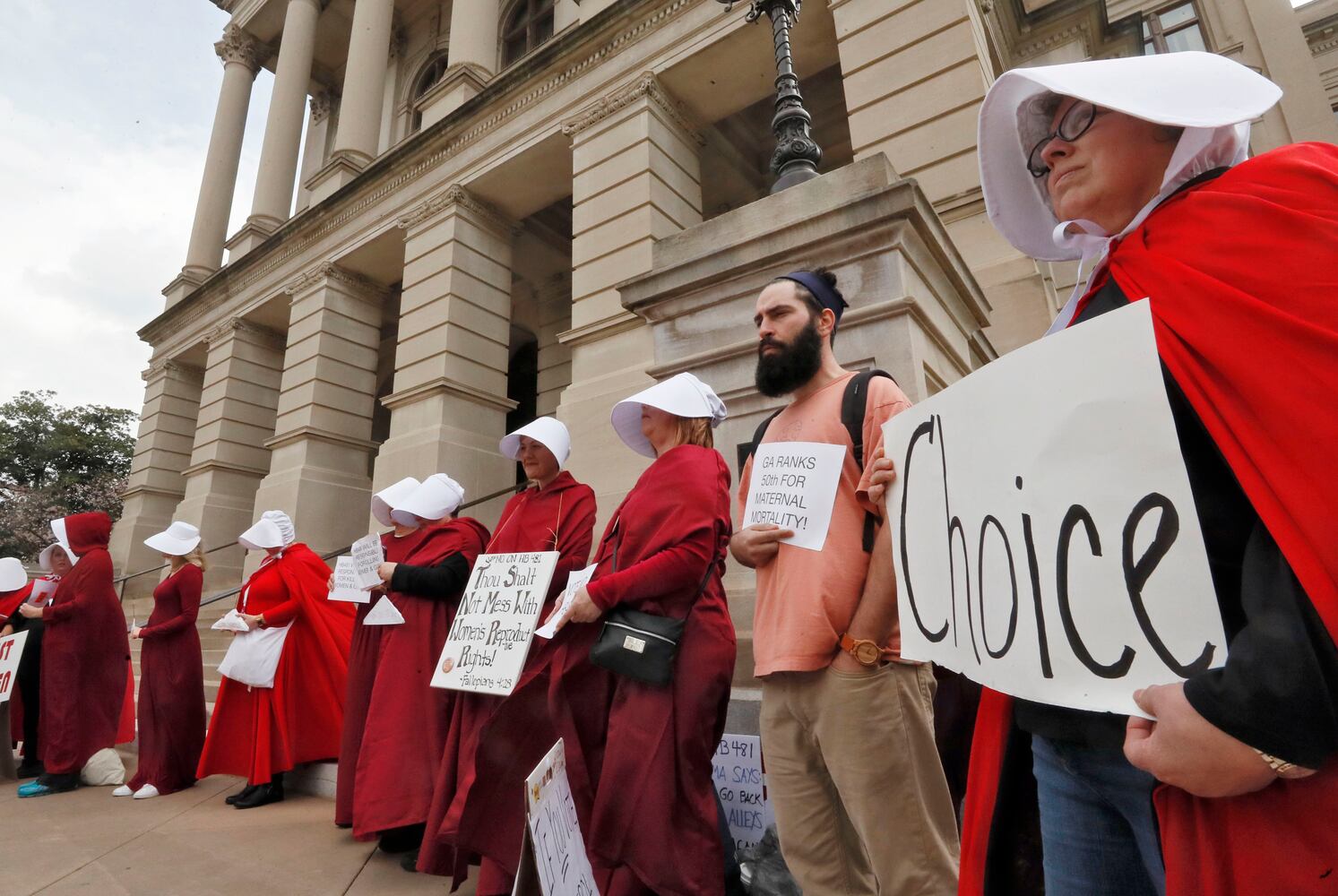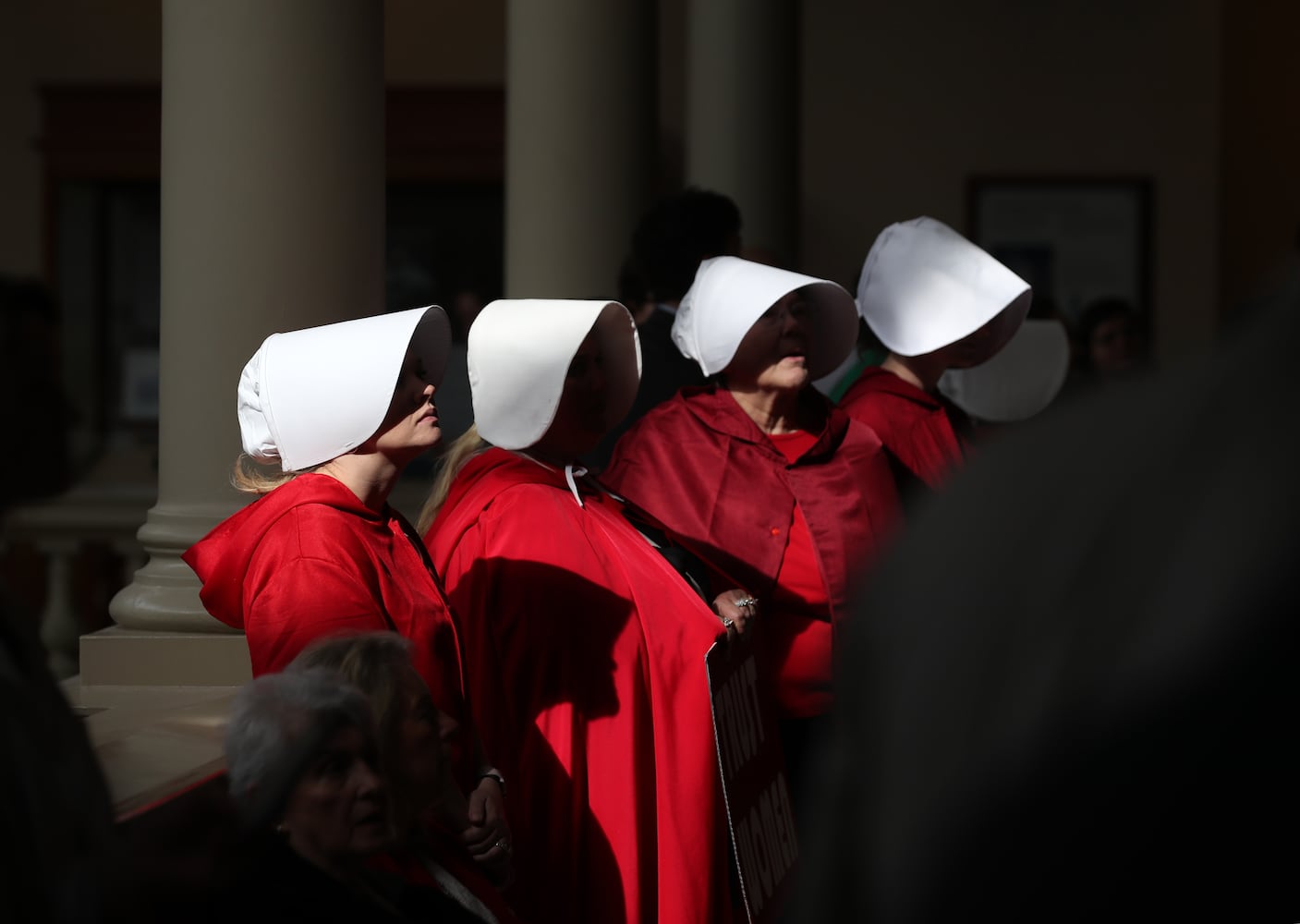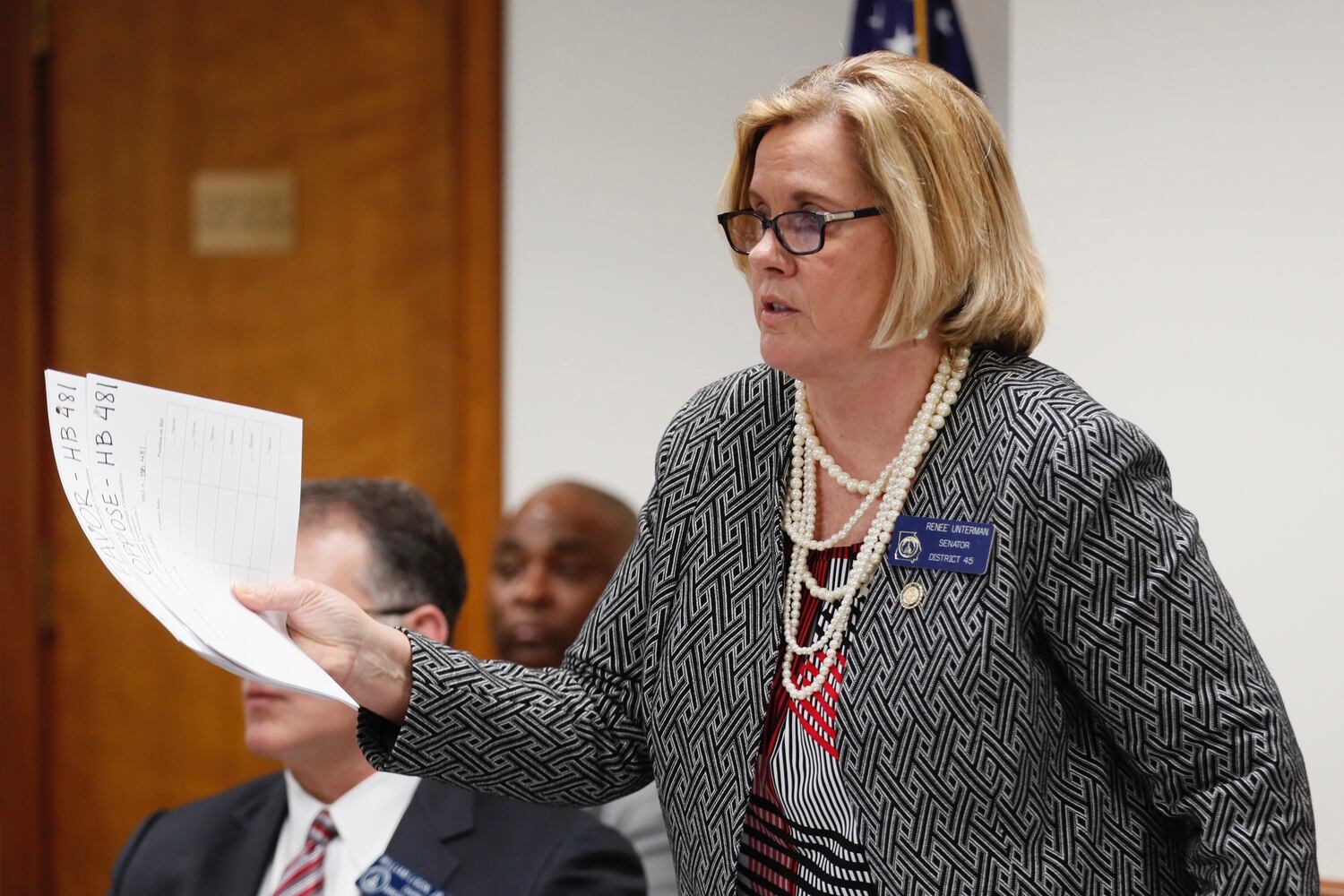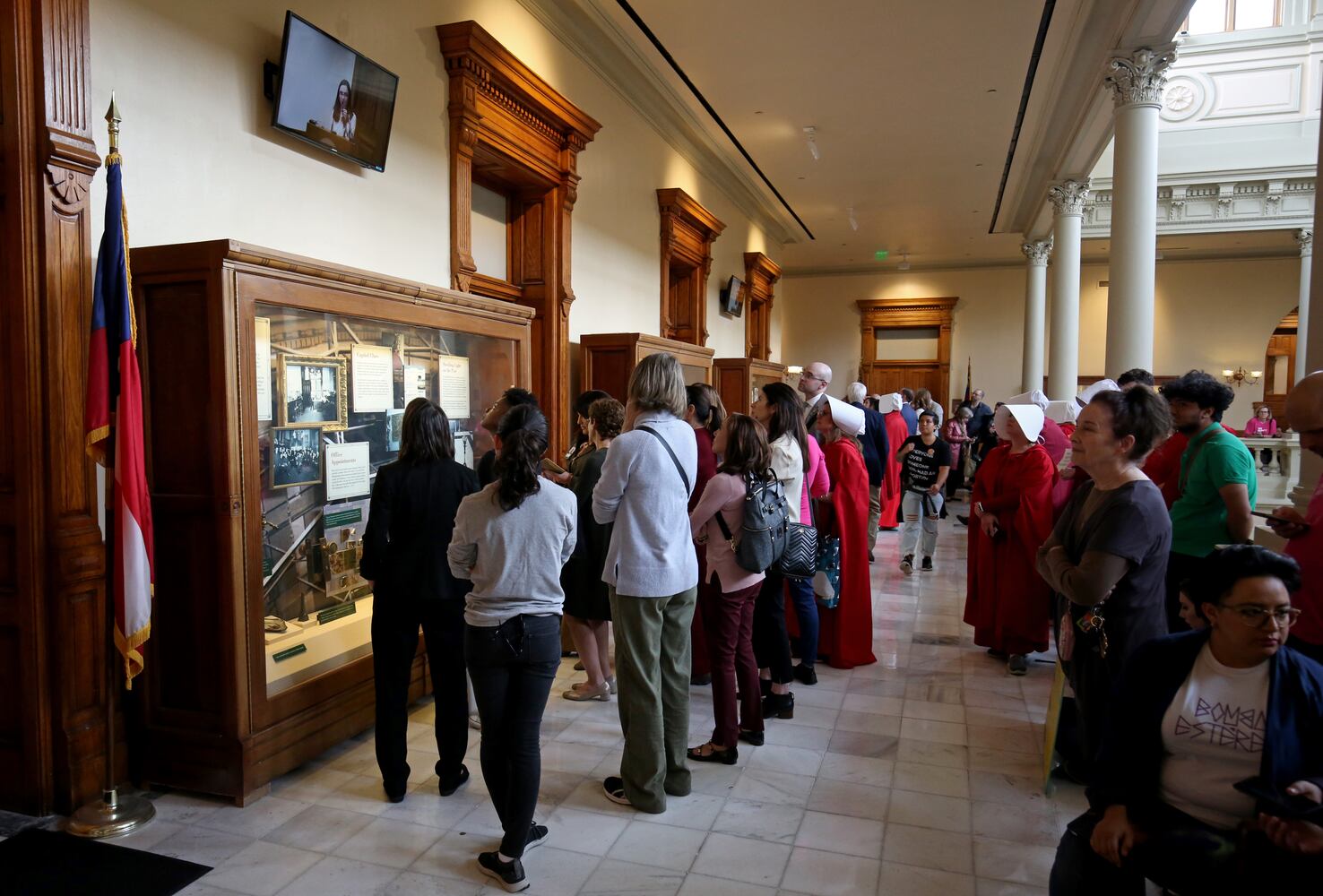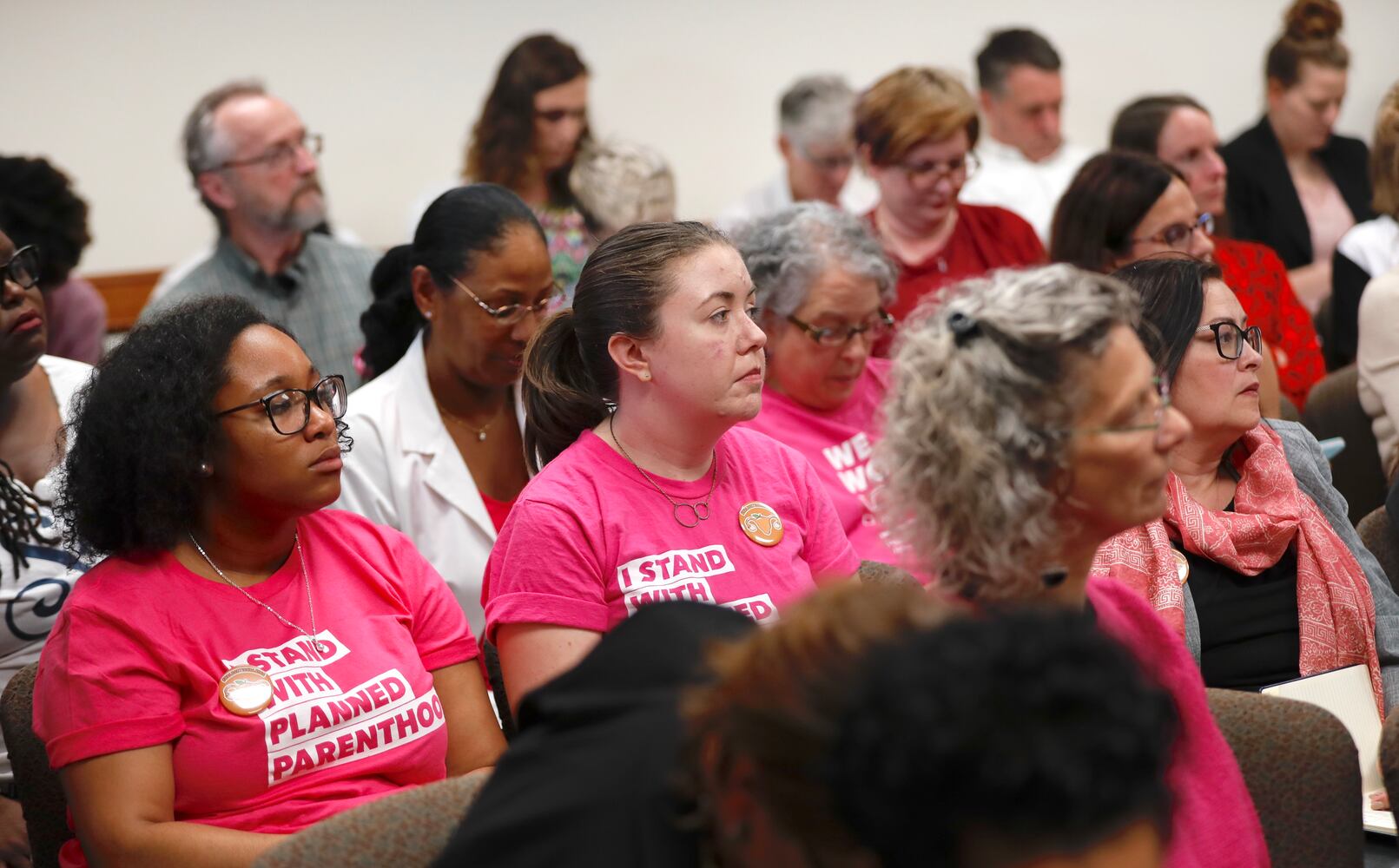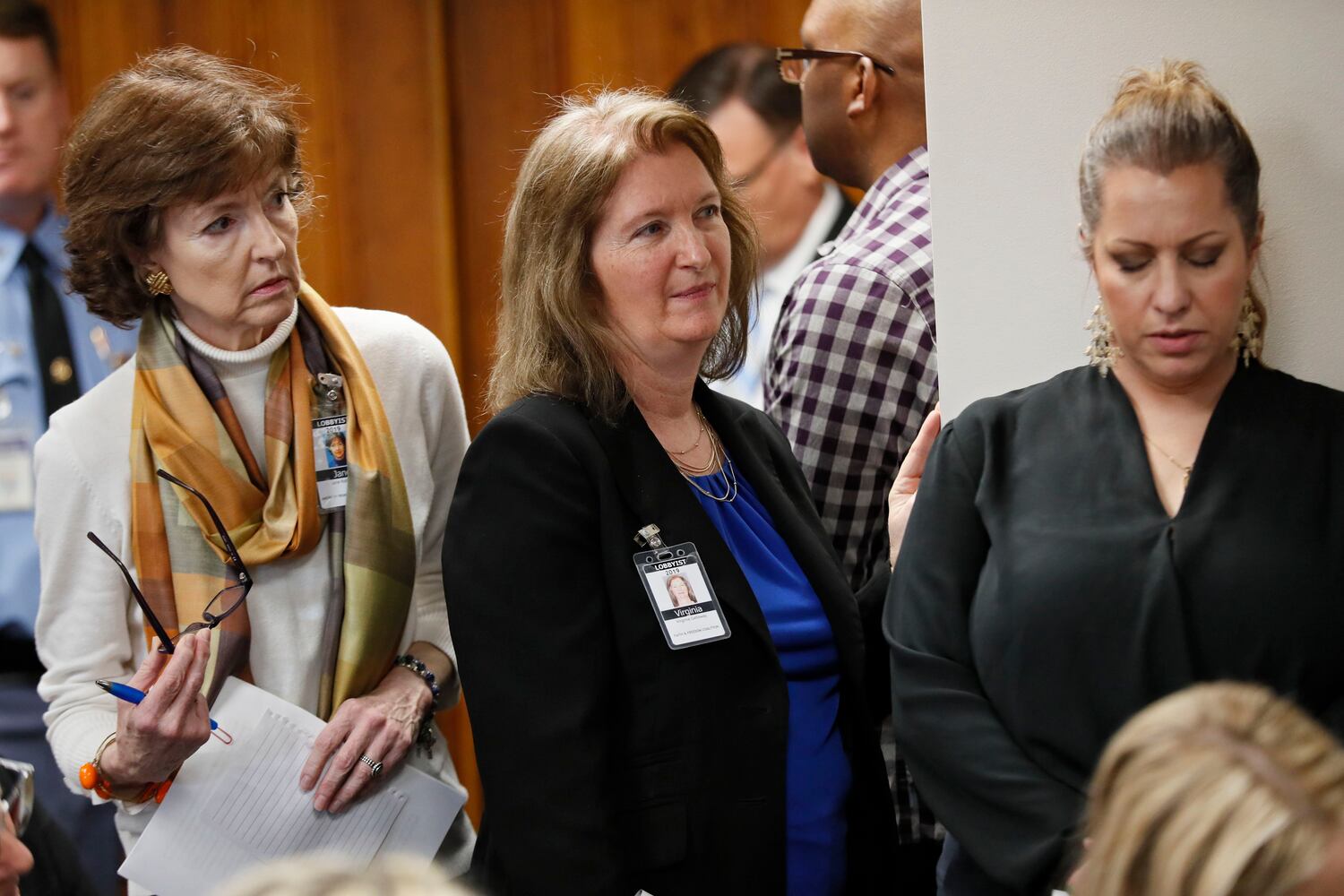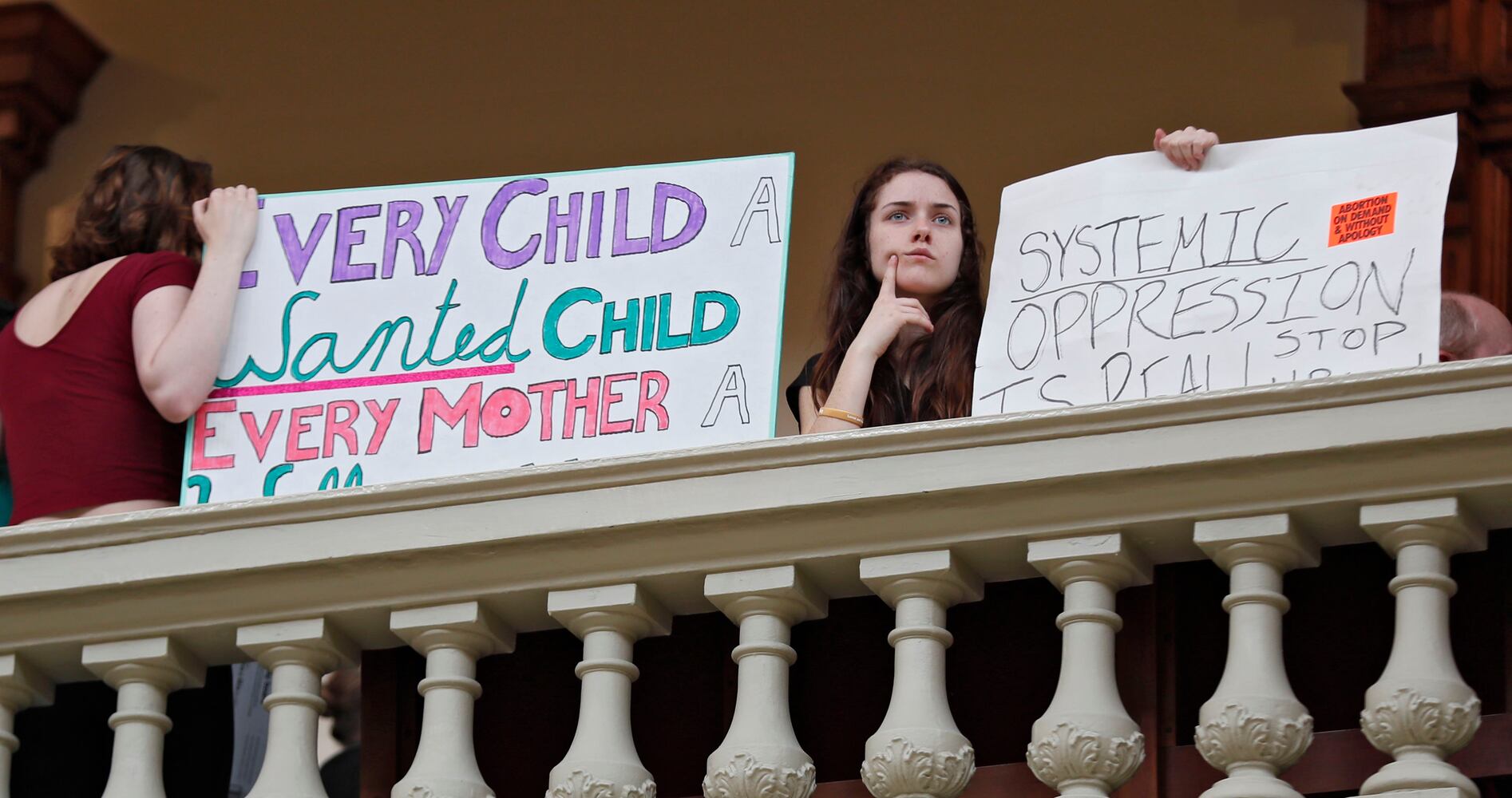More than 100 people showed up at the state Capitol for a hearing Thursday on a proposal to ban most abortions in Georgia. Opponents said the change would remove a woman’s right to make choices about her own health, and supporters said an unborn child should have greater rights.
A panel considering the proposal did not vote on the measure, and Senate Science and Technology Chairwoman Renee Unterman did not indicate when it might. The General Assembly session is scheduled to end April 2.
House Bill 481 would outlaw abortions once a doctor detects a heartbeat in the womb — which is usually at about six weeks into a pregnancy — and would be among the strictest abortion laws in the country. Current Georgia law allows abortions to be performed until 20 weeks.
The legislation narrowly passed the Georgia House last week.
Acworth Republican state Rep. Ed Setzler, its sponsor, presented an amended version of the bill Thursday that would allow expectant mothers to receive child support while they are still pregnant.
Unterman, a Buford Republican, said she would welcome additional changes from committee members over the weekend.
State police manned the doors of the packed hearing room and managed the crowd of nearly 100 people who filled the hallway outside.
Setzler said the goal of the legislation is to give more rights to the unborn.
“Protecting life in the womb with a human heartbeat is what science, law and human conscience would suggest,” Setzler said.
Under the proposal, women still would be able to get later abortions in cases of rape, incest, if the life of the mother is in danger or in instances of “medical futility,” when a fetus would not be able to survive after birth.
Additional changes proposed would allow parents to claim fetuses, once a heartbeat is detected, on their taxes as dependents. In an earlier version of the bill, parents could have claimed a deduction “at any stage of development.”
Setzler said the Fourth Amendment to the U.S. Constitution establishes a person’s right to privacy, a right that should be extended to fetuses.
State Sen. Jen Jordan, D-Atlanta, took issue with Setlzer on that point.
“The Fourth Amendment establishes the guarantee of due process exists to prevent unwanted governmental decisions within a person’s life,” she said, adding that what Setzler was proposing had the opposite effect.
Several doctors testified in opposition to the bill. Dr. Melissa Kottke, an Atlanta-area obstetrician/gynecologist, said passing the legislation would likely decrease the number of doctors practicing in Georgia. Currently, about half of the state’s counties do not have an ob/gyn.
“Bills like HB 481 act as a deterrent for obstetricians to practice in Georgia and the dearth of obstetric services will worsen — who would want to practice in a state that criminalizes the practice of medicine?” she said.
The committee heard hours of testimony that was at times emotional and several times drew laughter or applause from the crowd outside the doors.
Cole Muzio, a lobbyist with the Family Policy Alliance, recounted the story of his mother who, when she was pregnant with him, was told to have an abortion because of her medical issues.
“My brave mom chose life,” Muzio said, fighting back tears. “I am the father of three boys, the son of a mom that chose life, and I speak for the thousands of heartbeats that would be (saved by this bill). These are babies and they’re worth protecting.”
Stay on top of what’s happening in Georgia government and politics at ajc.com/news/georgia-government/.
About the Author
Keep Reading
The Latest
Featured

